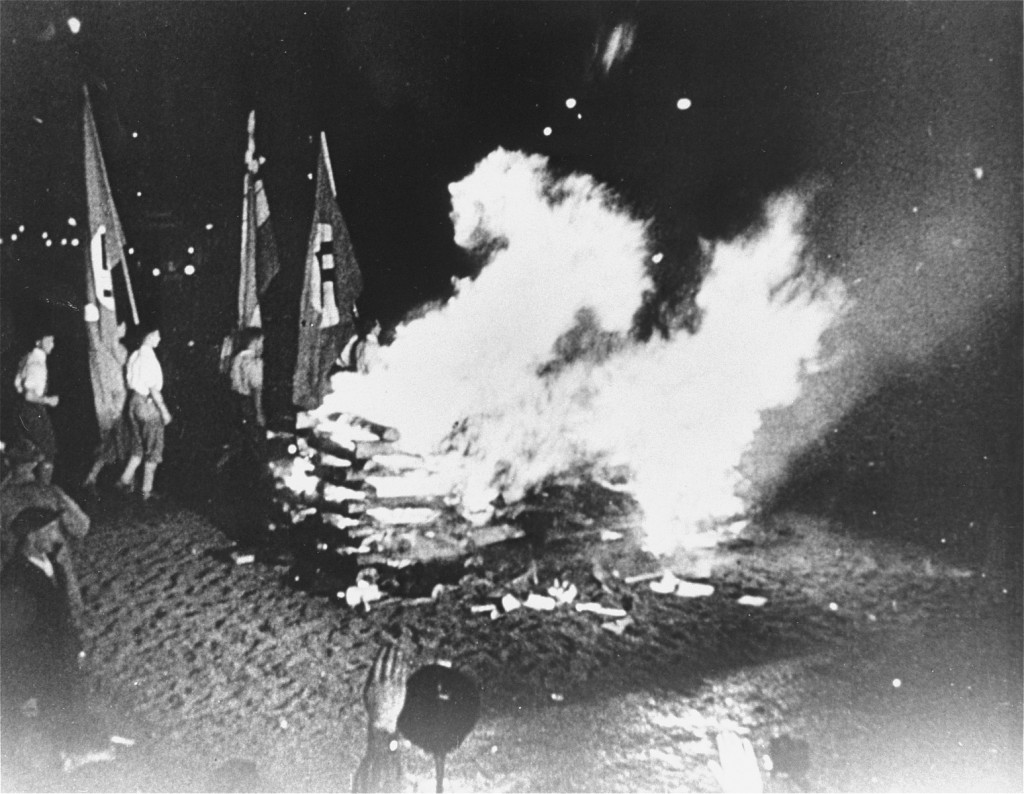
Kurt Pinthus
In 1933, Nazi students at more than 30 German universities pillaged libraries in search of books they considered to be "un-German." Among the literary and political writings they threw into the flames were the works of Kurt Pinthus.
Excerpt
The selected poems of roughly two dozen poets fused together quickly, almost by themselves, into motifs...that are collectively called 'The Dawn of Humanity.' All poems in this book stem from the complaint about humanity, the longing for humanity....These poets felt how the human was sinking into the dusk..., sinking into the night of demise....In this book, the human is turning away from the dusk of his...past and present...and turning towards the dawn of a future which he makes himself.
—From the foreword of the collection of poems, Menschheitsdämmerung: Ein Dokument des Expressionismus (Dawn of Humanity: A Document of Expressionism), Kurt Pinthus, 1919
Which of Kurt Pinthus's Works were Burned?
Menschheitsdämmerung: Ein Dokument des Expressionismus (Dawn of Humanity: A Document of Expressionism)
Who was Kurt Pinthus?
Kurt Pinthus (pseudonym, Paulus Potter; 1886-1975). Although not a creative writer himself, Pinthus was a pacemaker for the Expressionistic movement in literature. Born in Erfurt, Germany, he served as literary advisor for two German publishing houses and also wrote literary and theater reviews for various newspapers. His association with contemporary German writers enabled him to produce an anthology of representative texts that helped establish the movement among German readers. His numerous contributions to leading German literary journals and newspapers accompanied the movement right up to the time of Hitler's takeover.
Because of his close connection to the Expressionistic movement and his Jewish background, Kurt Pinthus was banned from non-Jewish outlets and his writings were burned. Pinthus immigrated to the United States in 1937 and continued working in the literary world. He returned to Germany only in 1967.
Critical Thinking Questions
If Jews were the principal target during the Holocaust, why were books written by non-Jewish authors burned?
How did the German public react to the book burnings? What were some of the reactions outside of Germany?
Why do oppressive regimes promote or support censorship and book burning? How might this be a warning sign of mass atrocity?

